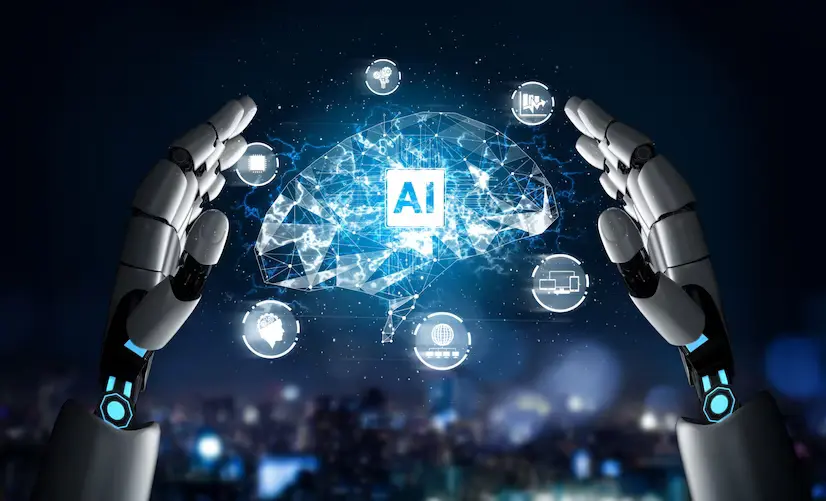- Home
- Departments
Departments Of Artificial Intelligence
Artificial-IntelligenceArtificial Intelligence (AI) is a branch of computer science that focuses on creating systems capable of performing tasks that typically require human intelligence. These tasks include understanding natural language, recognizing patterns, learning from experience, making decisions, and solving problems. AI technologies aim to replicate or mimic human cognitive functions in machines, enabling them to perform tasks autonomously and adaptively.
There are several key components and techniques within the field of AI:
Machine Learning: Machine learning is a subset of AI that focuses on developing algorithms and models that allow computers to learn from data and make predictions or decisions without being explicitly programmed for every task. Machine learning techniques include supervised learning, unsupervised learning, and reinforcement learning.
Deep Learning: Deep learning is a type of machine learning that uses artificial neural networks with multiple layers (hence the term "deep") to extract high-level features from raw data. Deep learning algorithms have achieved remarkable success in tasks such as image recognition, natural language processing, and speech recognition.
Natural Language Processing (NLP): NLP is a branch of AI that focuses on enabling computers to understand, interpret, and generate human language. NLP techniques include sentiment analysis, named entity recognition, text summarization, and machine translation.
Computer Vision: Computer vision is a field of AI that focuses on enabling computers to interpret and understand visual information from the real world, such as images and videos. Computer vision techniques include object detection, image classification, image segmentation, and facial recognition.
Robotics: Robotics is an interdisciplinary field that combines AI, engineering, and computer science to design, build, and operate robots. AI plays a crucial role in enabling robots to perceive their environment, make decisions, and perform tasks autonomously.
AI technologies have a wide range of applications across various industries, including healthcare, finance, automotive, retail, manufacturing, and entertainment. Examples of AI applications include virtual assistants (e.g., Siri, Alexa), autonomous vehicles, fraud detection systems, recommendation engines, medical diagnosis systems, and predictive maintenance systems.
Overall, AI has the potential to revolutionize how we live, work, and interact with technology, leading to significant advancements in efficiency, productivity, and innovation. However, it also raises ethical and societal considerations regarding privacy, bias, job displacement, and the impact on human society.

